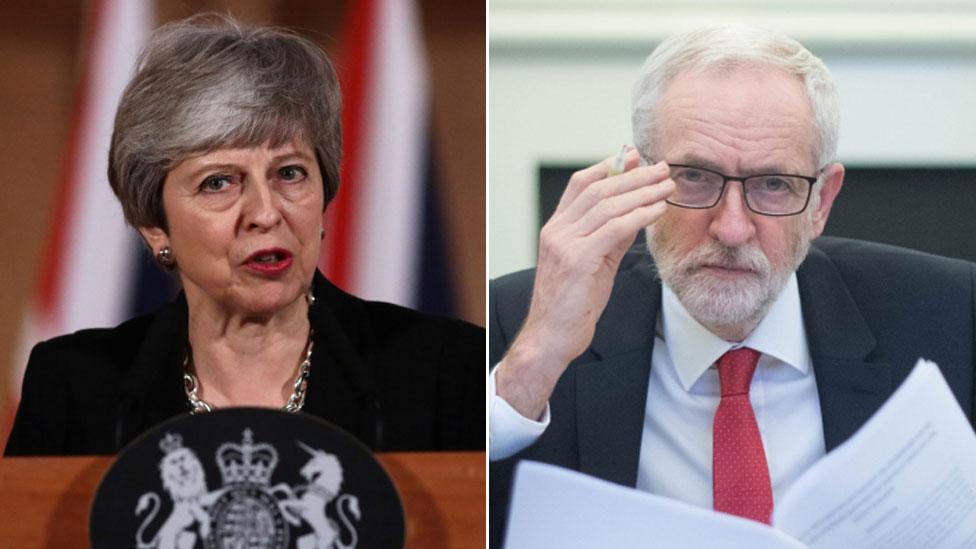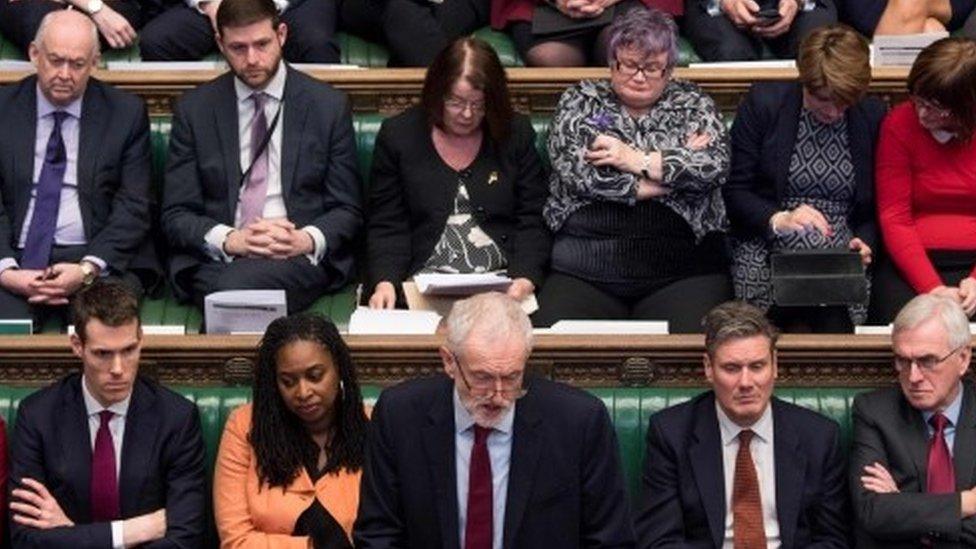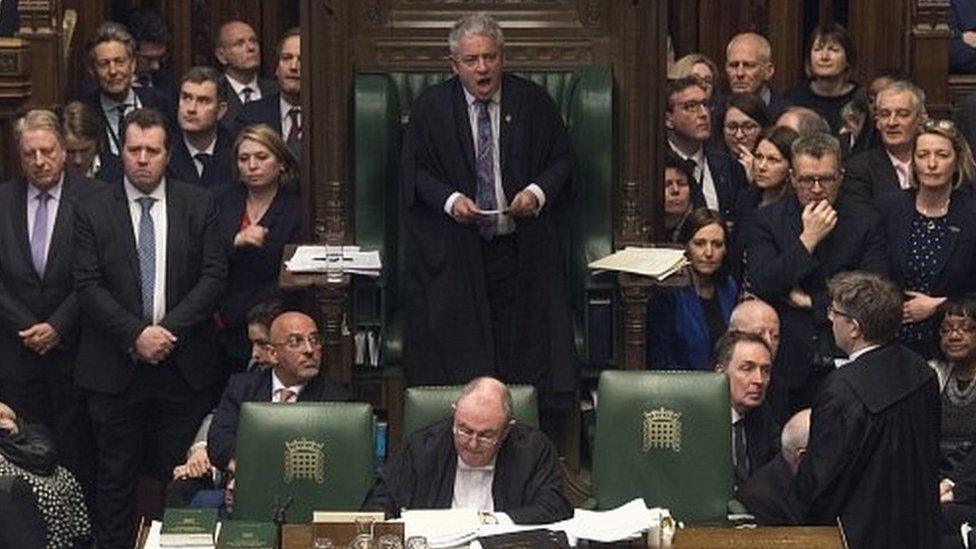Brexit puts a new twist on 'vote early and vote often'
- Published

Talks between May and Corbyn: Game-changer or another dead-end?
Politics, politics and yet more politics
It's not always easy being a political editor!
Time and time again, people come up to me to tell me how sick and tired they are of politics. "But what else do you expect me to do?" is my unspoken reply. And by the way, why are people watching our political programmes in such numbers if they're sick and tired of the subject?
Like it or not, just when everyone's saying they've had enough of politics, the one thing I can promise them is not less, but more politics.
Whatever ultimately comes of the talks between Theresa May and Jeremy Corbyn, be they a game-changer or yet another dead-end, they undoubtedly keep that Brexit pot boiling.
It certainly comes to something when the prime minister invites into the heart of the Brexit process someone she has accused of being "unfit" for high office who will insist Britain remains in a customs union in breach of one of her most famous red lines.
Cabinet sources suggested three of our own local MPs at the top table opposed Mrs May's approach to the opposition leader: Home secretary and Bromsgrove MP Sajid Javid; defence secretary and South Staffordshire MP Gavin Williamson; and culture secretary and MP for Kenilworth and Southam, Jeremy Wright.
Outside the cabinet, her party's Brexiteers accuse her of a form of betrayal known in the trade as BRINO: Brexit in Name Only. And they are very worried that further extensions to the Brexit deadline could turn into a form of mission creep: Like the Hotel California, you can check out but you can never leave.
But there are risks here for Mr Corbyn too. Some in his party will wonder why he should help Mrs May out of the hole she has dug for herself. Shouldn't he add extra conditions, a further referendum, for example?

Who's wondering whether Mr Corbyn should help Mrs May out of a hole?
However all these questions pan out, it guarantees the electorate will be kept busy this year.
That old catchphrase about voting early and voting often was originally conceived as a satirical parody of vote rigging in public elections. But at this time of chronic Brexit uncertainty, it has now gained a new meaning altogether.
We know already we'll be going to the polls in 28 of our Midlands local authorities at the beginning of next month. But at the end of it too there now lies the distinct possibility of another set of elections for our seven local seats in the European Parliament - polls that were not originally supposed to happen at all under the 29 March Brexit deadline.
Factor in the mounting speculation about a "snap" general election and a further referendum, and you can already hear the chorus of Brendas (and not just in Bristol): "Not ANOTHER one!"
Reaction from Bristol: 'You're joking. Why does she need to do it?'
No, no, no, no, no, no, no, no, no, no, no, no
Yes, that's 12 in all; the answer given by MPs to the series of indicative votes aimed at easing the Parliamentary deadlock by establishing which potential Brexit options might prove the most popular, or realistically, the least unpopular among MPs.
In the event, a further referendum was the option which won most votes on Monday night and the People's Vote campaign now reckons its chances are better than ever. Even some Tory Brexiteers are thought to be considering swinging in behind the idea as the best way of settling the issue in their favour once and for all.
But it was Kenneth Clarke's Customs Union or "soft Brexit" proposal which came closest to a majority, failing by just three votes. The former chancellor was supported by seven of our local Conservatives: Alex Chalk (Cheltenham is one of only three Midlands constituencies that voted Remain, along with Cotswold and Warwick and Leamington); Richard Graham (Gloucester); Margot James (Stourbridge); Jeremy Lefroy (Stafford); Andrew Mitchell (Sutton Coldfield); Mark Pawsey (Rugby); and Dame Caroline Spelman (Meriden).
Holy Grail
Yet again, we know what the Commons does not want. But what will it take to find the political equivalent of the Holy Grail, the idea which can win enough support from across the House to get it over the line?
It's not entirely clear whether or not the Speaker, John Bercow, would allow the Government to go for a fourth meaningful vote at all. But if it does, the Labour MP for Stoke Central, Gareth Snell, has a suggestion seen by some as a possible answer.

Could a Midlands MP's idea be a way of modifying the motion to John Bercow's satisfaction?
During last Friday's indicative votes, his proposal that MPs should be granted a bigger say in Britain's future relationship with the EU was among those not selected by the Speaker. But during the Commons exchanges, both Theresa May and the attorney general Geoffrey Cox went out of their way to tell Mr Snell that the Government would have allowed his proposal, had it been selected.
We know the Government is desperate for ways through the impasse. So could Mr Snell's idea give the Government a way of modifying its motion to Speaker Bercow's satisfaction so he would allow it to go forward for a fourth meaningful vote? Could Mr Snell yet play what would undoubtedly be a historic role in unblocking the logjam?
Remember where you saw it first!
But remember too that in this fast-moving crisis, many "breakthroughs" have been overtaken by events before the ink has dried.